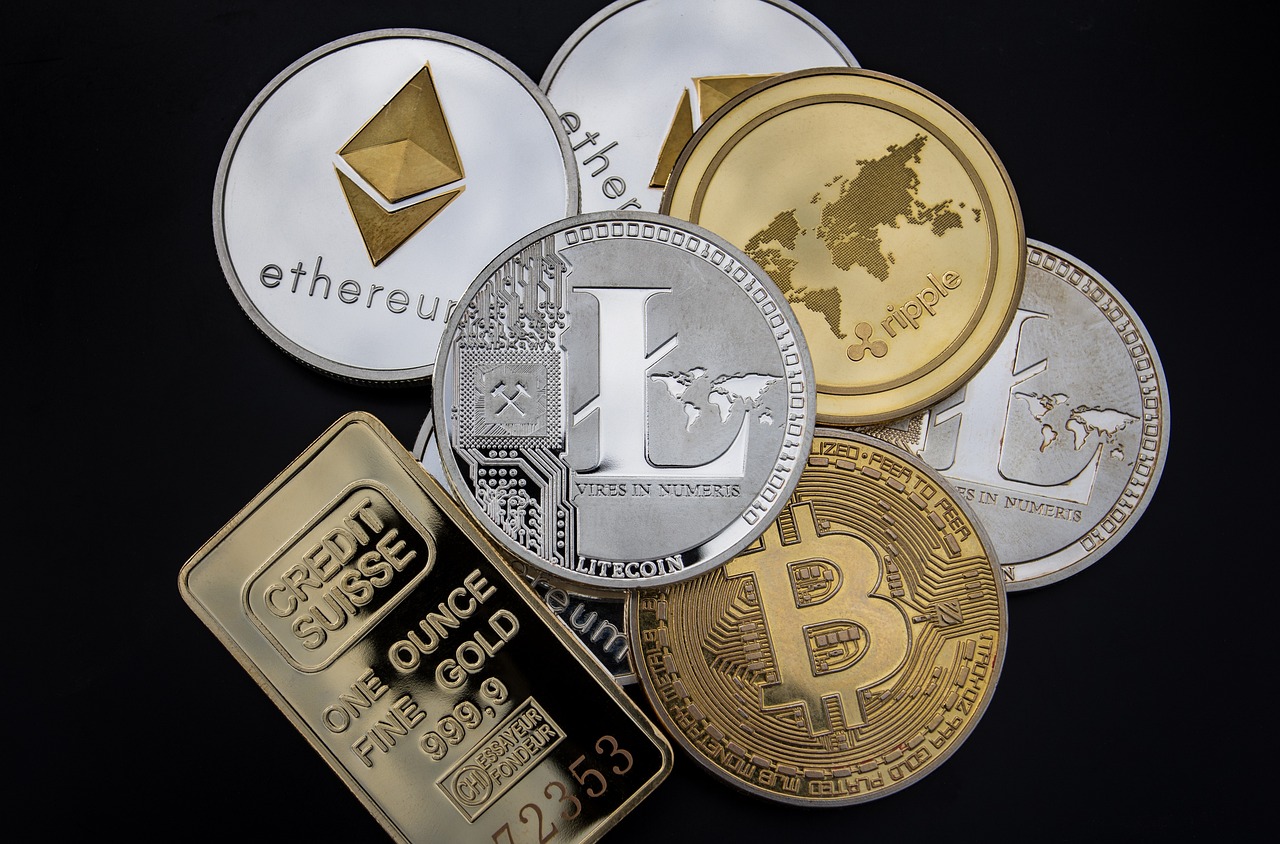How Blockchain is Revolutionizing the Travel and Tourism Sector
In the ever-evolving landscape of travel and tourism, blockchain technology is emerging as a game-changer, fundamentally altering the way we plan, book, and experience our journeys. Imagine a world where your travel transactions are not only secure but also transparent and efficient. Sounds appealing, right? With blockchain, this is becoming a reality. This innovative technology is not just a buzzword; it’s a powerful tool that enhances security, streamlines processes, and boosts customer satisfaction across the travel sector.
At its core, blockchain is a decentralized digital ledger that records transactions across multiple computers. This means that once information is added, it cannot be altered without the consensus of the network. For travelers, this translates to a safer environment where sensitive data, like payment information and personal identities, are protected from fraud and cyber threats. As we delve deeper into this topic, we’ll explore how blockchain is reshaping various facets of travel, from booking processes to loyalty programs, and even identity verification.
As we embark on this journey of discovery, think about how many times you've faced issues like lost luggage, fraudulent bookings, or complicated loyalty programs. What if these challenges could be effectively addressed through the power of blockchain? The potential is vast, and the implications are profound. So, buckle up as we navigate through the transformative impact of blockchain in the travel and tourism industry!
One of the primary benefits of blockchain technology in the travel sector is its ability to enhance security in financial transactions. The travel industry is notorious for its high rates of fraud, with travelers often falling victim to scams and unauthorized transactions. However, blockchain provides a secure platform for these transactions, significantly reducing the risk of fraud and enhancing customer trust.
By utilizing cryptographic techniques, blockchain ensures that every transaction is recorded and verified across a decentralized network. This means that rather than relying on a single point of failure, the security of transactions is distributed across multiple nodes. For travelers, this translates into peace of mind knowing that their payment information is safe and secure. Additionally, the transparency offered by blockchain allows customers to track their transactions in real-time, further boosting confidence in the system.
Booking a trip can often feel like navigating a labyrinth, filled with hidden fees and complicated terms. However, blockchain technology offers a solution to simplify this process through the use of smart contracts. These self-executing contracts automatically enforce and execute the terms of an agreement when predefined conditions are met, eliminating the need for intermediaries.
Imagine booking a hotel room: instead of going through multiple platforms and paying service fees, you could directly interact with the hotel through a blockchain-based system. This not only reduces administrative burdens but also enhances the overall customer experience. With smart contracts, travelers can enjoy:
- Faster booking confirmations
- Lower costs due to the elimination of middlemen
- Greater control over their bookings
Decentralized platforms are revolutionizing how travelers book accommodations and services. By allowing users to connect directly with service providers, blockchain eliminates the need for traditional intermediaries like travel agencies. This shift not only empowers travelers but also fosters a more competitive market, leading to better prices and services.
Blockchain technology has paved the way for peer-to-peer accommodation services, much like what platforms like Airbnb have done but with added security and transparency. Travelers can now book unique lodging options directly from providers, bypassing traditional hotel models. This not only offers more choices for travelers but also allows property owners to earn extra income without the hefty fees associated with hotel chains.
Imagine if every review you read online was verified and trustworthy. Blockchain can create immutable review systems, ensuring the authenticity of customer feedback. This transparency can significantly influence decision-making for travelers, allowing them to make informed choices based on genuine experiences rather than manipulated reviews.
In a world where loyalty programs often feel more like a maze than a reward system, blockchain technology offers a breath of fresh air. By making loyalty programs more flexible and user-friendly, customers can enjoy improved rewards systems that are easier to navigate and redeem.
Traveling often involves a lot of identity verification, which can be a hassle. Blockchain can streamline this process, making travel smoother and more efficient. Secure digital identities stored on the blockchain can expedite check-ins and border crossings, reducing wait times and enhancing the overall travel experience.
Imagine a future where your passport is stored securely on the blockchain, allowing for seamless international travel. Digital passports can simplify the verification process at borders, ensuring that travelers can pass through checkpoints quickly and efficiently. This innovation not only enhances global mobility but also strengthens security measures against identity fraud.
Identity theft is a significant concern for travelers, but blockchain's secure nature helps mitigate these risks. By safeguarding personal information on a decentralized network, travelers can rest easy knowing that their data is protected from unauthorized access. This is particularly crucial in an age where cyber threats are increasingly prevalent.
Blockchain technology also improves transparency in the travel supply chain, from airlines to hotels. By optimizing operations and enhancing accountability, blockchain can significantly reduce inefficiencies and improve service delivery. For instance, tracking luggage with blockchain can help reduce lost baggage incidents, ensuring that travelers receive their belongings promptly.
Implementing blockchain for luggage tracking can revolutionize the way airlines handle baggage. Real-time tracking systems can provide travelers with updates on their luggage's location, reducing the anxiety that comes with checking in bags. This innovation not only enhances the travel experience but also builds trust between airlines and their customers.
With the rise of online bookings, verifying the authenticity of travel services has become more critical than ever. Blockchain can help combat fraud in the tourism sector by verifying the legitimacy of service providers, ensuring customers receive what they pay for. This level of transparency can foster greater trust and loyalty among travelers.
Q: How does blockchain improve security in travel transactions?
A: Blockchain enhances security by using a decentralized network to record transactions, making it difficult for fraudsters to alter or manipulate data.
Q: What are smart contracts and how do they simplify bookings?
A: Smart contracts are self-executing contracts that automatically enforce terms when conditions are met, simplifying the booking process and reducing the need for intermediaries.
Q: Can blockchain help reduce identity theft risks for travelers?
A: Yes, blockchain helps safeguard personal information by storing it securely on a decentralized network, minimizing the risk of unauthorized access.

Enhancing Security in Transactions
In today's fast-paced travel industry, security is paramount. With the rise of digital transactions and online bookings, travelers are more concerned than ever about the safety of their financial information. This is where blockchain technology steps in as a game changer. By providing a secure platform for financial transactions, blockchain significantly reduces the risk of fraud, ensuring that both travelers and service providers can trust the payment processes involved.
So, how exactly does blockchain enhance security? At its core, blockchain operates on a decentralized network, which means that no single entity has control over the entire system. This decentralization makes it incredibly difficult for hackers to manipulate or alter transaction data. Each transaction is recorded in a public ledger that is accessible to all participants in the network, creating a transparent and tamper-proof record. This transparency fosters customer trust, as travelers can verify the legitimacy of transactions and service providers before making any commitments.
Moreover, blockchain employs advanced cryptographic techniques to secure sensitive information. Personal data, such as credit card numbers and identification details, can be encrypted and stored on the blockchain, reducing the chances of data breaches. In fact, according to a recent report, businesses that implement blockchain technology experience a 50% reduction in the risk of fraud compared to traditional payment systems. This statistic highlights the potential of blockchain to not only protect travelers but also to bolster the reputation of travel companies.
To illustrate the effectiveness of blockchain in enhancing transaction security, consider the following table:
| Feature | Traditional Payment Systems | Blockchain Payment Systems |
|---|---|---|
| Transaction Transparency | Limited | High |
| Data Security | Moderate | High |
| Fraud Risk | High | Low |
| Customer Trust | Variable | Consistent |
As we can see from the table, blockchain technology offers significant advantages over traditional payment systems. The enhanced transparency and security it provides not only protect the traveler but also build a solid foundation of trust between consumers and service providers. Ultimately, this leads to a more enjoyable and secure travel experience.
In conclusion, the integration of blockchain into the travel sector is a revolutionary step towards enhancing transaction security. By leveraging this technology, businesses can significantly reduce fraud, protect sensitive information, and foster a trusting relationship with their customers. As the travel industry continues to evolve, embracing blockchain will be crucial for ensuring a safe and secure environment for all.

Streamlining Booking Processes
Imagine a world where booking your next vacation is as easy as clicking a button, without the hassle of endless forms or waiting for confirmation emails. Blockchain technology is making this dream a reality by simplifying the booking process for travelers through the use of smart contracts. These self-executing contracts with the terms of the agreement directly written into code eliminate the need for intermediaries, allowing for a more streamlined and efficient experience.
With blockchain, the entire booking process can be automated. For instance, when you book a flight or a hotel room, a smart contract automatically verifies your payment and confirms your reservation. This not only speeds up the process but also reduces the chances of human error. You might be wondering, "How does this really work?" Well, think of it like a vending machine: you insert your money, select your item, and instantly receive your purchase without needing to interact with a cashier. In the same way, blockchain can provide immediate confirmation of your bookings.
Moreover, the transparency that blockchain offers means you can trust the entire process. Every transaction is recorded on a public ledger, which means that once you make a booking, it becomes part of an immutable record. This significantly reduces the risk of double bookings or fraudulent activity, giving travelers peace of mind. Imagine knowing that your reservation is safe and secure, with no hidden fees or surprises waiting for you at check-in.
Additionally, the use of decentralized platforms powered by blockchain allows travelers to book accommodations and services directly from providers, cutting out the middleman. This not only saves money but also enhances the overall experience. Here’s how it works:
- Direct Communication: You can communicate directly with hosts or service providers, ensuring that your needs and preferences are met.
- Better Prices: Without intermediaries taking a cut, prices can be significantly lower.
- Unique Offerings: Travelers can discover unique accommodations and experiences that may not be listed on traditional booking sites.
In essence, blockchain is reshaping the way we think about travel bookings. It’s not just about convenience; it’s about creating a more transparent, secure, and efficient ecosystem for all parties involved. As we move forward, we can expect to see more travel companies adopting this technology, leading to a future where booking your dream vacation is as smooth as a gentle breeze.
Q: What are smart contracts?
A: Smart contracts are self-executing contracts with the terms of the agreement directly written into code, allowing for automated transactions without intermediaries.
Q: How does blockchain improve security in travel bookings?
A: Blockchain enhances security by providing an immutable record of transactions, reducing the risk of fraud and ensuring that bookings are trustworthy.
Q: Can I book directly with service providers using blockchain?
A: Yes! Blockchain enables decentralized platforms where travelers can book directly with service providers, often resulting in better prices and unique offerings.

Decentralized Platforms for Travelers
Imagine a world where you can book your dream vacation without the hassle of middlemen and their hefty fees. Sounds enticing, right? Decentralized platforms are making this dream a reality, allowing travelers to connect directly with service providers. By leveraging blockchain technology, these platforms eliminate the need for traditional intermediaries, such as travel agencies and booking sites, which often complicate the process and inflate prices.
So, how do these decentralized platforms work? In essence, they create a peer-to-peer network where users can interact directly with one another. This not only reduces costs but also fosters a sense of community among travelers. For instance, instead of booking a hotel through a third-party website, you can connect directly with the property owner, negotiate your stay, and even get insider tips about the area. It's like having a local friend in every destination you visit!
One of the standout features of decentralized platforms is the enhanced transparency they offer. With blockchain, every transaction is recorded on a public ledger, ensuring that all parties involved can verify the legitimacy of their interactions. This means that travelers can see the history of reviews and ratings for accommodations or services, leading to more informed decisions. Imagine being able to trust that the glowing review you read was not fabricated!
Furthermore, decentralized platforms often come with a built-in incentive for users to participate actively. For example, users can earn tokens or rewards for providing services, leaving reviews, or even referring friends. This creates a more engaged community and can lead to better service overall. It’s a win-win situation: travelers get better deals, and hosts or service providers receive direct feedback, enabling them to improve their offerings.
However, like any emerging technology, there are challenges. The adoption rate of decentralized platforms is still growing, and not everyone is familiar with how to navigate these systems. Additionally, while blockchain provides security, users must still exercise caution and conduct their own research to ensure they are dealing with reputable providers. But as more travelers become aware of the benefits, we can expect a shift in how travel bookings are made.
In conclusion, decentralized platforms are reshaping the travel landscape, offering a more direct, transparent, and rewarding way to plan your journeys. As we continue to embrace this technology, the future of travel looks brighter than ever, with endless possibilities for personalization and connection. So, the next time you plan a trip, consider diving into the world of decentralized travel platforms—you might just find your next adventure waiting at your fingertips!
- What are decentralized platforms? Decentralized platforms are systems that allow users to interact directly with service providers without intermediaries, often utilizing blockchain technology for security and transparency.
- How do I know if a decentralized platform is trustworthy? Look for platforms with transparent review systems and a history of positive user experiences. Always conduct your own research before making any bookings.
- Can I save money by using decentralized platforms? Yes! By cutting out middlemen, decentralized platforms often offer lower prices and more flexible options for travelers.
- What if I encounter issues with a booking? Since decentralized platforms operate on a peer-to-peer basis, it's essential to communicate directly with the provider. Many platforms have built-in dispute resolution systems to assist users.

Peer-to-Peer Accommodation Services
Imagine a world where your next vacation doesn't involve a faceless hotel chain, but rather a cozy home or unique space hosted by a local. powered by blockchain technology are making this dream a reality. This innovative approach allows travelers to connect directly with property owners, cutting out the middleman and enhancing the experience for both parties involved.
In this new landscape, platforms built on blockchain enable seamless transactions and secure communication between guests and hosts. The benefits of this model are numerous. For starters, it offers travelers a wider variety of options, from charming apartments in bustling city centers to serene cabins in the countryside. Each stay is enriched by the local flavor and personal touch that only a resident can provide.
Moreover, the transparency that blockchain brings to these transactions cannot be overstated. Traditional accommodation platforms often leave guests wondering about the authenticity of listings and the credibility of reviews. With blockchain, every review is tied to a verified transaction, creating an immutable record that travelers can trust. This not only enhances the decision-making process but also fosters a sense of community among users.
It's also worth noting how this system empowers hosts. They can set their own prices, manage availability, and engage directly with guests, creating a personalized experience. This direct interaction can lead to better service, as hosts are more invested in their guests' satisfaction. Furthermore, the elimination of hefty commission fees that conventional booking platforms typically charge means that both hosts and travelers can enjoy more favorable pricing.
As we dive deeper into this revolutionary shift, it's clear that peer-to-peer accommodation services are not just a trend; they are reshaping the travel landscape. With the potential to disrupt traditional hotel models, these services offer a glimpse into a future where travel is more accessible, affordable, and authentic. Whether you're a traveler seeking unique experiences or a host looking to share your space, blockchain technology is paving the way for a new era in tourism.
- What is peer-to-peer accommodation? Peer-to-peer accommodation refers to a model where travelers can book lodging directly from property owners, bypassing traditional hotels and intermediaries.
- How does blockchain enhance peer-to-peer accommodation? Blockchain provides a secure, transparent platform for transactions and reviews, ensuring authenticity and trust between guests and hosts.
- What are the benefits for travelers? Travelers gain access to a wider variety of unique accommodations, often at lower prices, while enjoying a more personalized experience.
- What advantages do hosts have? Hosts can set their own prices, engage directly with guests, and keep more of their earnings by avoiding high commission fees from traditional booking platforms.

Transparent Review Systems
In the travel industry, customer reviews are often the lifeblood of a business. They influence decisions, build trust, and can make or break a service provider. However, the current review systems are fraught with issues, such as fake reviews and biased feedback. This is where blockchain technology steps in, like a superhero ready to save the day. By creating an immutable record of reviews, blockchain ensures that all feedback is authentic and verifiable. Imagine a world where every review you read is backed by a secure digital ledger, making it nearly impossible to manipulate or fabricate. This is the promise of blockchain in enhancing transparency in review systems.
With blockchain, each review is timestamped and linked to the reviewer’s digital identity (while still maintaining privacy). This means that travelers can trust that the feedback they see is genuine. Furthermore, the decentralized nature of blockchain eliminates the need for a central authority to manage and verify reviews, which can often lead to biases or conflicts of interest. Instead, the community itself becomes the gatekeeper of authenticity. When users know that their reviews are recorded on a blockchain, they are more likely to provide honest feedback, knowing it will have a lasting impact.
Consider this: when booking a hotel, do you rely on reviews from friends or family, or do you scroll through online platforms? Most of us do the latter, but with skepticism. Wouldn't it be comforting to know that the reviews you read are not only from real customers but also verified through a transparent system? Blockchain can provide this peace of mind, allowing travelers to make informed decisions based on trustworthy feedback.
Moreover, the transparency offered by blockchain can lead to a more competitive marketplace. Service providers are incentivized to improve their offerings as they know that genuine customer feedback will be visible to all. This creates a healthier ecosystem where quality and service are prioritized, ultimately benefiting travelers. A transparent review system powered by blockchain can transform the way we perceive and interact with travel services.
In summary, the integration of blockchain into review systems is not just a technological upgrade; it’s a fundamental shift towards greater accountability and trust in the travel industry. As travelers, we deserve to know that the information we rely on is accurate and trustworthy. With blockchain, we can finally have that assurance.
- How does blockchain ensure the authenticity of reviews? Blockchain creates an immutable record of each review, making it impossible to alter or delete once posted.
- Can travelers remain anonymous while using blockchain for reviews? Yes, blockchain allows for pseudonymous identities, ensuring privacy while maintaining accountability.
- What are the benefits of using a transparent review system? It enhances trust, reduces fraud, and encourages service providers to improve their offerings.

Improving Loyalty Programs
In the fast-paced world of travel, loyalty programs have become a vital tool for businesses to retain customers and encourage repeat bookings. However, many traditional loyalty schemes have limitations that frustrate travelers. This is where blockchain technology comes into play, revolutionizing how these programs operate and enhancing the overall customer experience.
Imagine a loyalty program that is not only flexible but also transparent. With blockchain, travelers can earn and redeem points seamlessly across various platforms without being tied down to a single airline or hotel chain. This means you can accumulate rewards from multiple sources, making it easier to achieve your travel goals. For instance, you could earn points by booking a flight, staying at a hotel, or even dining at a local restaurant. All these points could be stored in a secure digital wallet, accessible anytime and anywhere.
Moreover, the use of smart contracts within blockchain technology can automate the loyalty program processes. When you complete a transaction, the smart contract can automatically update your points balance, eliminating the need for manual tracking or delays in earning rewards. This not only enhances efficiency but also builds trust, as customers can see real-time updates on their points without any discrepancies.
Another exciting aspect of blockchain-enhanced loyalty programs is the potential for interoperability. This means that points earned from one program could be exchanged for rewards in another. Imagine being able to transfer your airline miles to a hotel chain or vice versa! This level of flexibility can significantly enhance customer satisfaction and loyalty, as travelers feel they have more control over their rewards.
To illustrate the impact of blockchain on loyalty programs, consider the following table:
| Traditional Loyalty Programs | Blockchain-Enhanced Loyalty Programs |
|---|---|
| Limited to one brand | Interoperable across multiple brands |
| Manual tracking of points | Automated tracking via smart contracts |
| Points may expire | Points can be stored securely and used flexibly |
| Opaque rules and conditions | Transparent rules visible on the blockchain |
In summary, blockchain technology is set to transform loyalty programs in the travel sector. By offering flexibility, transparency, and automation, it not only enhances customer experiences but also fosters stronger relationships between businesses and their clients. As travelers, we can look forward to a future where loyalty programs are not just an afterthought but a vital part of our travel adventures.
- What is blockchain technology? Blockchain is a decentralized digital ledger that records transactions across many computers securely and transparently.
- How can blockchain improve loyalty programs? It enhances flexibility, transparency, and automation, making it easier for travelers to earn and redeem rewards.
- Are blockchain loyalty programs secure? Yes, blockchain technology provides a secure environment for transactions, reducing the risk of fraud.
- Can I transfer points between different loyalty programs? With blockchain, interoperability may allow you to transfer points between various programs.

Facilitating Identity Verification
In today's fast-paced world, identity verification has become a crucial aspect of travel. Long lines at airports, tedious check-in processes, and the constant worry of identity theft can turn a dream vacation into a nightmare. However, blockchain technology is stepping up to the plate, offering solutions that not only streamline these processes but also enhance security. Imagine walking through an airport where your identity is verified in seconds, allowing you to breeze through check-ins and border crossings. Sounds like a fantasy, right? Well, with blockchain, this is becoming a reality.
Blockchain allows for the creation of secure digital identities, which can be stored and accessed securely. This means that instead of carrying multiple forms of identification, travelers can have all their essential information stored on a blockchain-based platform. When you arrive at the airport, your digital identity can be verified in real-time, effectively reducing wait times and making the entire travel experience smoother. Think of it as having a VIP pass that gets you through the gates faster, all while ensuring that your personal information is kept under wraps and protected from prying eyes.
Moreover, the implications of digital passports and visas are vast. Imagine a world where you no longer need to carry a physical passport. Instead, your passport information is stored on the blockchain, providing a secure and easily accessible way to verify your identity. This innovation not only simplifies international travel but also enhances security, as the risk of losing or having your passport stolen is significantly reduced. In a time when identity theft is rampant, this can be a game-changer for travelers.
However, the benefits don’t stop there. Blockchain technology also plays a vital role in reducing identity theft risks. With traditional identification methods, personal information can be easily compromised. But blockchain's decentralized nature ensures that your data is encrypted and stored across multiple nodes, making it nearly impossible for hackers to access. This level of security is crucial for travelers who want peace of mind while exploring new destinations.
In summary, blockchain technology is not just a buzzword; it is revolutionizing the way we verify identities in the travel sector. By facilitating secure digital identities, simplifying passport processes, and significantly reducing identity theft risks, blockchain is paving the way for a smoother, safer travel experience. So, the next time you think about traveling, remember that the future is bright, and blockchain is leading the charge towards a more efficient and secure journey.
- What is blockchain technology? Blockchain is a decentralized digital ledger that securely records transactions across multiple computers.
- How does blockchain enhance identity verification? It allows for the creation of secure digital identities that can be easily verified without the need for physical documents.
- Are digital passports safe? Yes, digital passports stored on the blockchain are encrypted and less susceptible to theft compared to traditional passports.
- Can blockchain prevent identity theft? Yes, its decentralized nature makes it difficult for hackers to access personal information.

Digital Passports and Visas
Imagine a world where your passport is not just a physical book filled with stamps but a secure digital entity that you carry in your pocket, accessible at a moment's notice. This is the promise of , a revolutionary concept that leverages blockchain technology to simplify and enhance international travel. With traditional passports, travelers often face long queues, tedious paperwork, and the constant fear of losing their important documents. However, with digital passports, the entire experience can be transformed into a seamless process that prioritizes efficiency and security.
Digital passports stored on the blockchain can provide travelers with a unique identifier that is not only secure but also easily verifiable by border control agencies worldwide. This means that when you arrive at a border, instead of fumbling through your bag for your physical passport, you can simply present your digital identity on your smartphone. This not only speeds up the check-in process but also significantly reduces the chances of identity theft, as your personal information is encrypted and stored securely on the blockchain.
Furthermore, the integration of digital visas into this system can streamline the entire travel experience. Imagine applying for a visa online, receiving instant approval, and having it linked directly to your digital passport. This would eliminate the need for cumbersome paperwork and multiple visits to embassies or consulates. The real-time verification capabilities of blockchain ensure that your visa status can be checked instantly, making border crossings smoother and less stressful.
But how does this all work? Here’s a breakdown:
| Feature | Traditional System | Digital Passport System |
|---|---|---|
| Application Process | Lengthy, often requiring physical visits | Instant online application and approval |
| Verification | Manual checks by border control | Instant verification via blockchain |
| Security | Physical documents can be lost or stolen | Encrypted and secure digital identity |
As we move towards a more digital world, the adoption of digital passports and visas is not just a trend; it is a necessary evolution in travel. The benefits are clear: enhanced security, reduced processing times, and a more user-friendly experience for travelers. However, for this to become a reality, international cooperation and standardization are essential. Governments and travel organizations must work together to create a framework that supports this innovative technology.
Ultimately, the future of travel is bright with the integration of blockchain technology. Digital passports and visas are just the beginning of a new era in which travel is not only easier but also more secure and more efficient. Are you ready to embrace this change and travel with peace of mind?
- What is a digital passport? A digital passport is an electronic version of a traditional passport that securely stores a traveler’s identity information on the blockchain.
- How does a digital passport enhance security? It encrypts personal information and provides a unique identifier that can be verified by border agencies, reducing the risk of identity theft.
- Will digital passports replace traditional passports? While digital passports offer many advantages, it will likely take time for them to fully replace traditional passports, as international standards and regulations need to be established.

Reducing Identity Theft Risks
In today’s fast-paced world, where travel is more accessible than ever, the risk of identity theft looms large. Imagine arriving at your dream destination only to find that your personal information has been compromised. It’s a nightmare scenario that no traveler wants to face. Fortunately, blockchain technology offers a robust solution to this pressing issue. By leveraging the unique features of blockchain, travelers can significantly reduce the risks associated with identity theft and safeguard their personal information.
One of the key benefits of blockchain is its secure and decentralized nature. Unlike traditional databases that can be vulnerable to hacks and unauthorized access, blockchain operates on a distributed ledger system. This means that your personal data is not stored in a single location, making it incredibly difficult for cybercriminals to target. Each transaction or piece of information is encrypted and linked to previous data, creating an unbreakable chain that enhances security. In essence, blockchain acts like a high-tech vault, keeping your information safe from prying eyes.
Moreover, blockchain enables the creation of digital identities that are far more secure than conventional methods. Instead of relying on physical documents like passports or driver's licenses, travelers can use blockchain-based digital IDs. These digital identities are not only encrypted but also verified by multiple parties on the network, ensuring authenticity. This means that when you check in at an airport or hotel, your identity can be confirmed without exposing sensitive personal information. It’s like having a digital shield that protects you while allowing you to move freely.
To illustrate how blockchain reduces identity theft risks, consider the following advantages:
- Enhanced Privacy: Travelers can control what information they share and with whom, minimizing the risk of exposure.
- Immutable Records: Once data is recorded on the blockchain, it cannot be altered or deleted, ensuring your identity remains intact.
- Real-time Monitoring: Blockchain allows for real-time tracking of your identity verification process, alerting you to any suspicious activity.
Additionally, the use of blockchain can streamline the authentication process. Imagine walking through airport security without the hassle of showing multiple forms of ID. With a blockchain-based identity, a simple scan can verify your credentials in seconds. This not only speeds up the process but also reduces the chances of your information being mishandled or stolen during transit.
In conclusion, as travelers increasingly seek peace of mind while exploring the globe, the integration of blockchain technology into identity verification systems is a game-changer. By providing a secure, decentralized, and efficient means of confirming identities, blockchain not only enhances the travel experience but also protects against the ever-present threat of identity theft. As we move towards a more digital future, embracing this technology could be the key to safer travels for everyone.
- What is blockchain technology? Blockchain is a decentralized digital ledger that securely records transactions across multiple computers, making it nearly impossible to alter or hack.
- How does blockchain enhance security in travel? By providing a secure platform for storing personal information and using encryption, blockchain significantly reduces the risk of identity theft.
- What are digital identities? Digital identities are secure, blockchain-based representations of personal information that travelers can use for verification without exposing sensitive data.
- Can blockchain prevent all identity theft? While blockchain greatly reduces risks, it is essential for travelers to remain vigilant and practice good cybersecurity habits.

Enhancing Supply Chain Management
In the ever-evolving world of travel and tourism, the need for a robust supply chain management system has never been more critical. Blockchain technology is stepping up to the plate, offering innovative solutions that enhance transparency and efficiency throughout the entire supply chain. Imagine a world where every transaction, every booking, and every service is recorded in an immutable ledger that anyone can trust. That’s the promise of blockchain, and it’s revolutionizing how we think about supply chains in travel.
One of the most significant advantages of blockchain in supply chain management is its ability to provide real-time tracking and verification of services. For instance, when you book a flight, the entire journey—from the airline to the hotel—can be seamlessly tracked through the blockchain. This not only enhances accountability among service providers but also ensures that travelers receive exactly what they paid for. Transparency is key; when customers can see the entire supply chain, they are more likely to trust the services they are using.
Moreover, the integration of blockchain can help in optimizing operations across various sectors of the travel industry. Take airlines, for example. By utilizing blockchain, airlines can streamline their operations, manage their inventories better, and ensure that their services are aligned with customer expectations. With a clear view of the supply chain, airlines can avoid overbooking, manage delays more efficiently, and ultimately improve customer satisfaction. This level of operational efficiency is akin to having a finely tuned machine—every part works in harmony to deliver a superior experience.
Another area where blockchain shines is in the authentication of travel services. In an industry plagued by fraud and counterfeit services, blockchain offers a solution that can verify the legitimacy of travel providers. This means that when you book a tour or a hotel, you can be confident that the service is authentic and as described. For instance, a traveler could scan a QR code linked to a blockchain entry to confirm the legitimacy of their hotel booking. This not only protects customers but also builds a trustworthy environment for service providers.
To illustrate the impact of blockchain on supply chain management, consider the following table that outlines the traditional vs. blockchain-enhanced supply chain processes:
| Aspect | Traditional Supply Chain | Blockchain-Enhanced Supply Chain |
|---|---|---|
| Transparency | Limited visibility; prone to fraud | Real-time visibility; immutable records |
| Verification | Manual checks; time-consuming | Instant verification; automated processes |
| Efficiency | Slow, bureaucratic processes | Streamlined operations; faster transactions |
| Customer Trust | Low; concerns over authenticity | High; reliable and verifiable |
In conclusion, as we embrace the future, blockchain technology is set to transform supply chain management in the travel and tourism sector. The ability to enhance transparency, improve operational efficiency, and authenticate services is not just a game-changer; it's a necessity in today's fast-paced world. As travelers, we can look forward to a more secure and streamlined experience, where our journeys are supported by a system that prioritizes our needs and safety.
- What is blockchain technology? Blockchain is a decentralized digital ledger that records transactions across many computers in a way that the registered data cannot be altered retroactively.
- How does blockchain improve supply chain management? It enhances transparency, reduces fraud, and improves operational efficiency by providing real-time tracking and verification of services.
- Can blockchain help reduce travel fraud? Yes, by authenticating travel services and ensuring that customers receive what they pay for, blockchain significantly reduces the risk of fraud.
- What are the benefits of using blockchain for travelers? Travelers benefit from increased transparency, improved security, and more efficient booking processes, leading to a better overall travel experience.

Tracking Luggage with Blockchain
Imagine stepping off a plane and feeling that familiar rush of excitement, only to be met with the sinking feeling of lost luggage. It's a scenario that countless travelers have faced, and it often leads to frustration and anxiety. However, with the advent of blockchain technology, the days of worrying about your bags could soon be behind us. Blockchain offers a revolutionary way to track luggage in real-time, transforming the travel experience into something much more reliable and stress-free.
At its core, blockchain is a decentralized ledger that records transactions across multiple computers securely. This means that once information is entered, it cannot be altered without the consensus of all participants in the network. So, how does this apply to luggage tracking? By integrating blockchain into the baggage handling process, airlines can create a transparent and immutable record of each piece of luggage from the moment it is checked in until it arrives at its final destination.
For instance, when a traveler checks in their luggage, a unique identifier is generated and recorded on the blockchain. This identifier is linked to the passenger's flight details, baggage handling information, and even the baggage carousel at the destination airport. As the luggage moves through various checkpoints, its status is updated in real-time on the blockchain, allowing both the airline and the traveler to track its location effortlessly.
Consider the benefits of such a system:
- Real-Time Updates: Travelers can receive instant notifications about their luggage status via a mobile app, reducing anxiety and enhancing the overall travel experience.
- Reduced Lost Baggage Incidents: With a transparent tracking system, the likelihood of lost luggage decreases significantly, as every movement is recorded and can be traced back easily.
- Accountability: Airlines can be held accountable for their handling of luggage, as the immutable nature of blockchain ensures that any discrepancies can be traced back to the responsible party.
Moreover, the integration of blockchain technology in luggage tracking can foster greater collaboration among various stakeholders in the travel industry. Airlines, airports, and even third-party logistics companies can share access to the blockchain, ensuring that everyone involved in the baggage handling process is on the same page. This collective approach not only enhances efficiency but also builds trust among partners and customers alike.
As we look to the future of travel, the implications of blockchain for luggage tracking are profound. Imagine a world where you never have to worry about your bags again, where every piece of luggage is accounted for, and where the travel experience is seamless from start to finish. With blockchain technology paving the way, this vision is not far from reality. As more airlines and travel providers adopt this innovative solution, travelers can look forward to a level of service that prioritizes their peace of mind.
In conclusion, tracking luggage with blockchain is more than just a technological advancement; it's a game-changer for the travel industry. By enhancing transparency, accountability, and efficiency in luggage handling, blockchain is set to revolutionize the way we travel, making it safer and more enjoyable for everyone.
- How does blockchain improve luggage tracking? Blockchain provides a secure and transparent way to record and track luggage movements in real-time, reducing the chances of lost bags.
- Can I track my luggage using a mobile app? Yes, many airlines are developing mobile applications that allow travelers to receive real-time updates on their luggage status using blockchain technology.
- What happens if my luggage is lost? With blockchain, airlines can quickly trace the last known location of your luggage, making it easier to locate and return it to you.

Ensuring Authenticity of Travel Services
When planning a trip, the last thing anyone wants is to fall victim to fraudulent services or scams. With the rise of online booking platforms, the risk of encountering fake accommodations or misleading travel packages has increased significantly. This is where blockchain technology steps in as a game-changer, providing a robust solution to ensure the authenticity of travel services. By leveraging the unique features of blockchain, travelers can now verify the legitimacy of their chosen services with unparalleled confidence.
Blockchain operates on a decentralized ledger system, meaning that every transaction or piece of information is recorded and immutable. This transparency ensures that all parties involved—be it travelers, service providers, or booking platforms—have access to the same verified data. For instance, when a hotel lists its services on a blockchain-based platform, every detail, from pricing to availability, is securely logged. This not only prevents tampering but also builds a trustworthy relationship between service providers and customers.
Moreover, the power of smart contracts plays a crucial role in this authenticity equation. Smart contracts are self-executing contracts with the terms of the agreement directly written into code. They automatically verify and enforce the conditions agreed upon by both parties without the need for intermediaries. For example, if a traveler books a hotel room through a blockchain platform, the smart contract ensures that the booking is honored at the agreed price and that the accommodation meets the specified criteria. If any discrepancies arise, the contract can automatically trigger a refund or other remedies, providing peace of mind for travelers.
Additionally, blockchain can be instrumental in creating a transparent review system. Traditional review platforms often suffer from fake reviews and manipulated ratings. However, with blockchain, each review can be timestamped and linked to the customer's verified identity, making it nearly impossible to fabricate feedback. This means that travelers can make informed decisions based on genuine experiences shared by other users, enhancing their overall travel experience.
To further illustrate the impact of blockchain on ensuring authenticity in travel services, consider the following table:
| Feature | Traditional Systems | Blockchain Systems |
|---|---|---|
| Verification of Service Providers | Often relies on third-party reviews | Immutable records and verified identities |
| Handling Disputes | Lengthy processes involving intermediaries | Smart contracts automate dispute resolution |
| Review Authenticity | Susceptible to fake reviews | Verified reviews linked to real customers |
In this new landscape, travelers are empowered with the knowledge that the services they are booking are legitimate and backed by verifiable data. The potential for fraud is significantly reduced, and the overall trust in the travel industry is strengthened. As blockchain technology continues to evolve, it promises to bring even more innovative solutions that will further enhance the authenticity and reliability of travel services.
- How does blockchain technology ensure the authenticity of travel services?
Blockchain creates an immutable ledger of all transactions, allowing travelers to verify the legitimacy of services through transparent records. - What are smart contracts, and how do they work in travel bookings?
Smart contracts are self-executing agreements that automatically enforce the terms of a contract, providing security and reducing the need for intermediaries. - Can blockchain eliminate fake reviews?
Yes, blockchain can create a transparent review system where each review is linked to verified identities, making it difficult to manipulate feedback. - Are blockchain-based travel platforms widely available?
While still emerging, many travel platforms are beginning to adopt blockchain technology to enhance security and transparency in their services.
Frequently Asked Questions
- What is blockchain technology and how does it relate to travel?
Blockchain technology is a decentralized digital ledger that securely records transactions across multiple computers. In the travel sector, it enhances security, transparency, and efficiency in various processes, from bookings to payments, making travel experiences smoother and more trustworthy.
- How does blockchain enhance security in travel transactions?
Blockchain enhances security by providing a secure platform for financial transactions, reducing the risk of fraud. Each transaction is encrypted and time-stamped, making it difficult for malicious actors to alter the data. This builds customer trust and ensures that payment processes are safe.
- Can blockchain simplify the booking process for travelers?
Absolutely! By utilizing smart contracts, blockchain simplifies the booking process, allowing for automatic execution of agreements without the need for intermediaries. This reduces administrative burdens and enhances the overall customer experience, making travel planning much more efficient.
- What are the benefits of decentralized platforms in travel?
Decentralized platforms empower travelers to book accommodations and services directly from providers, eliminating the need for traditional intermediaries. This can lead to lower prices, more unique lodging options, and a more personalized travel experience.
- How does blockchain improve loyalty programs in the travel industry?
Blockchain improves loyalty programs by making them more flexible and user-friendly. Customers can easily track their rewards, redeem points across various platforms, and enjoy a seamless experience that enhances their loyalty to brands.
- What role does blockchain play in identity verification for travelers?
Blockchain streamlines identity verification processes by providing secure digital identities. This can expedite check-ins and border crossings, making travel smoother and reducing the hassle of traditional verification methods.
- How can digital passports stored on blockchain simplify international travel?
Digital passports on blockchain can simplify international travel by securely storing all necessary information in one place. This allows for quicker processing at borders, reducing wait times and enhancing the overall travel experience.
- In what ways does blockchain help reduce identity theft risks in travel?
Blockchain's secure nature helps mitigate identity theft risks by encrypting personal information and allowing travelers to control their data. This ensures that sensitive information is protected and only accessible to authorized parties.
- How does blockchain enhance supply chain management in the travel industry?
Blockchain improves supply chain management by providing transparency and accountability from airlines to hotels. It enables stakeholders to track services and products in real-time, ensuring that customers receive what they pay for and optimizing operations.
- Can blockchain technology help track luggage during travel?
Yes! Implementing blockchain can significantly enhance luggage tracking. By using real-time data, travelers can monitor their bags' locations, reducing the chances of lost luggage and providing peace of mind during their journeys.
- How does blockchain verify the authenticity of travel services?
Blockchain verifies the authenticity of travel services by creating an immutable record of transactions and reviews. This ensures that customers can trust the quality of services they are purchasing, combating fraud and enhancing overall satisfaction.



















